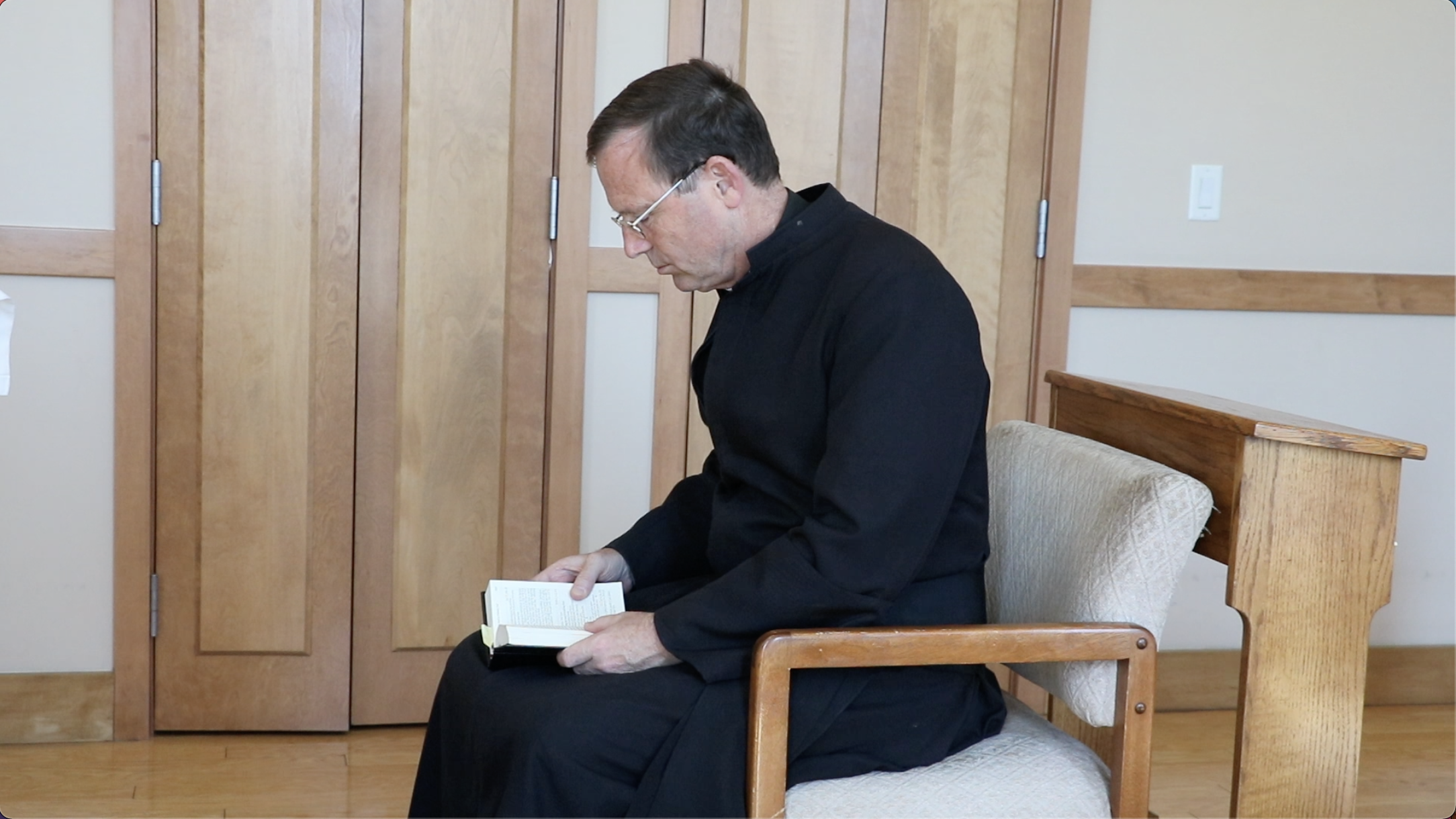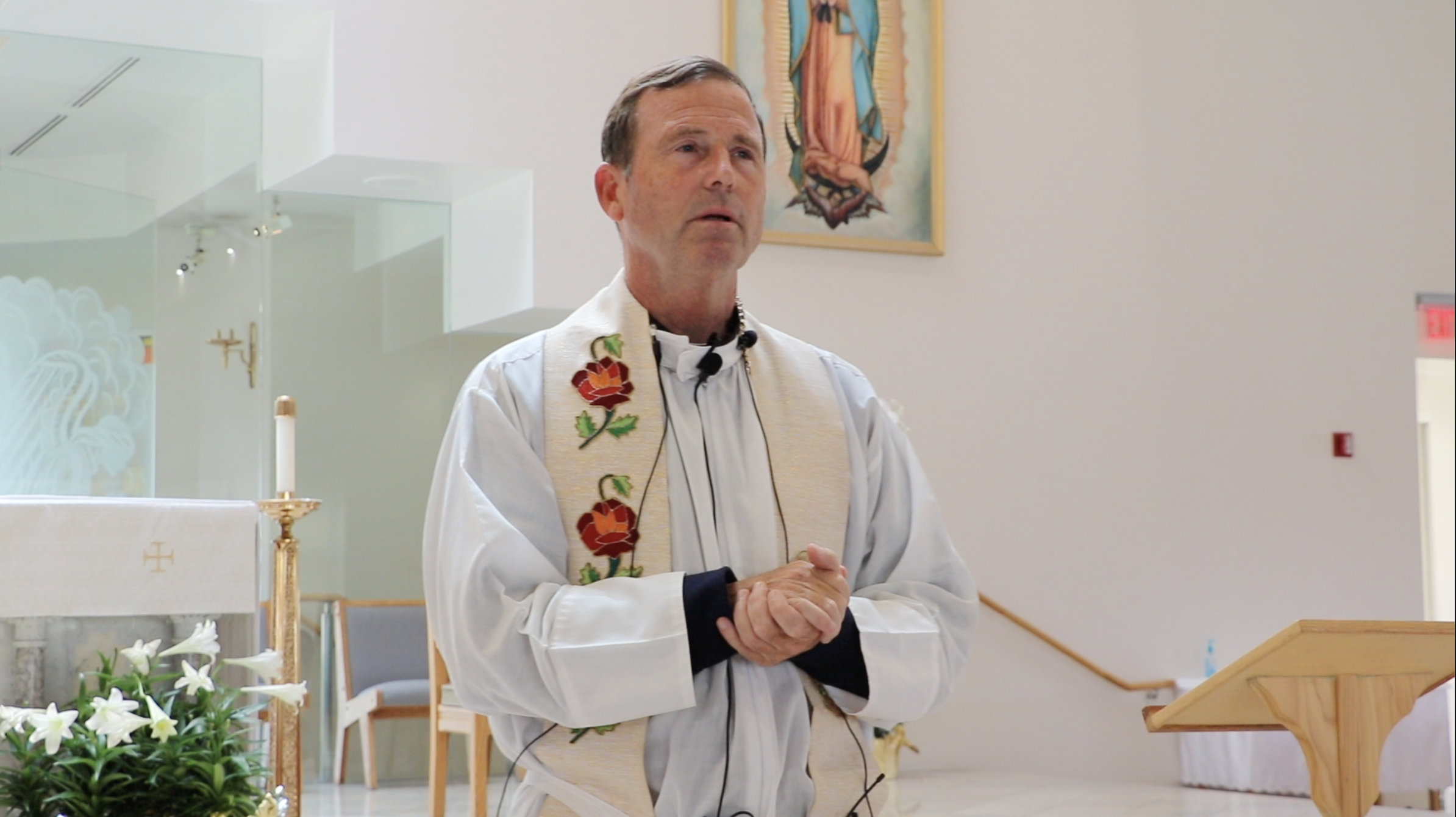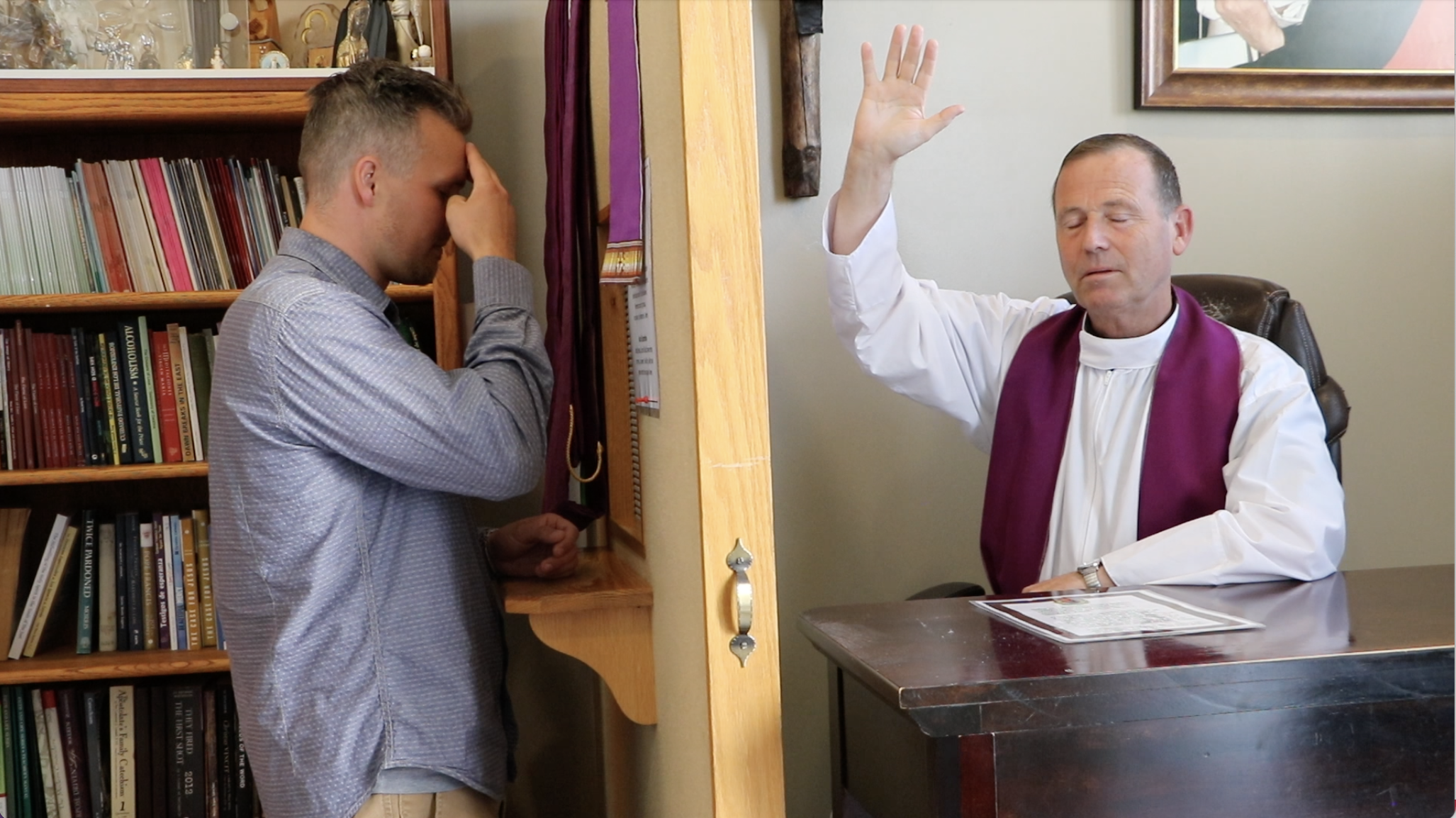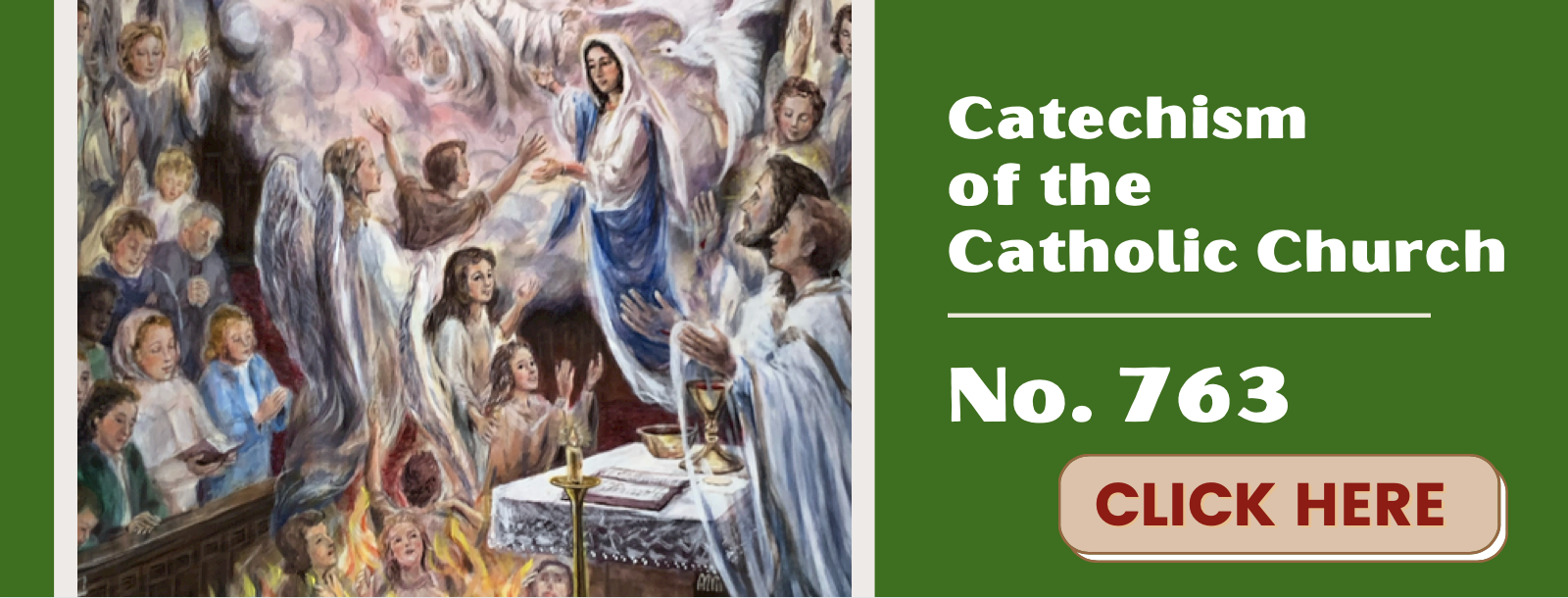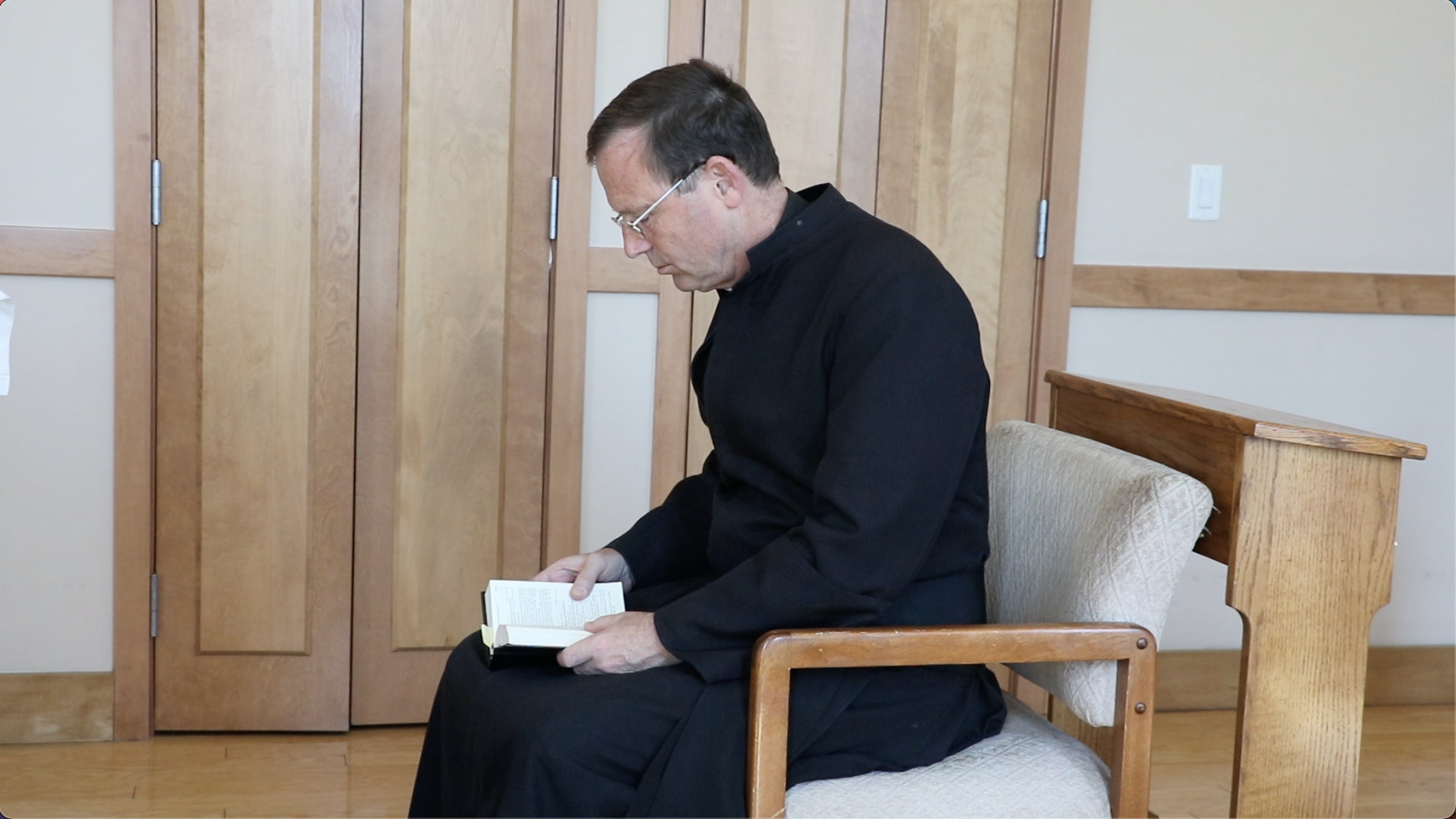
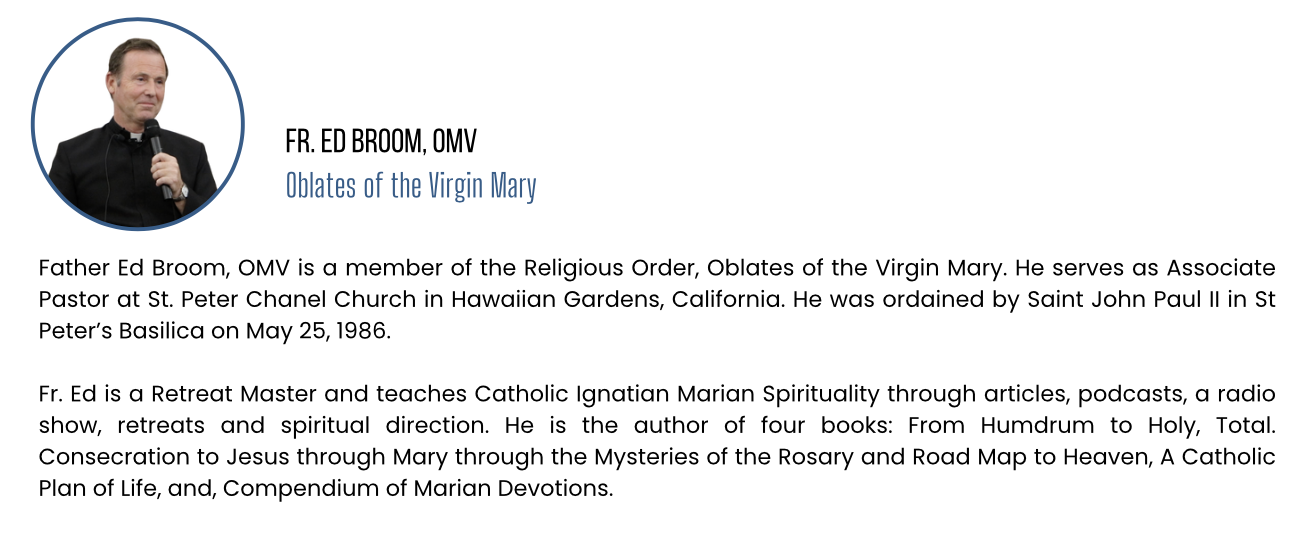
In the name of the Father, and of the Son, and of the Holy Spirit. Amen. Id like to welcome you all to our Perseverance Family conversation and as always, it’s great to be with all of you! We’d like to start by inviting Mary to be with us. Mary is the Mother of God, Mary is the mother of the Church, and Mary is also the mother of each and every one of us. And also we pray the Hail Holy Queen, we invoke Mary as our life, our sweetness and our hope. Let’s ask Mary to accompany us and to help us to love God with all of our heart, mind, soul, and strength. Let’s pray together now.
Hail Mary, full of grace, the Lord is with thee blessed art thou among women and blessed is the fruit of thy womb, Jesus. Holy Mary, Mother of God, pray for us sinners now and at the hour of our death. Amen.
Now we would like to invite to be with us our Spiritual Director. What a great privilege it is for us to have as our Spiritual Director, the Holy Spirit. Holy Spirit has many wonderful titles! Holy Spirit is known as the Paraclete. The Holy Spirit is also known as the Gift of gifts. As a title also the Holy Spirit is known as the Sweet Guest of our souls. Also, the Holy Spirit is our Counselor. He’ll be the one that gives us good advice. The Holy Spirit is also known as our Consoler. We all have to go through moments of desolation. But we pray the Holy Spirit to help us to rejoice always in His presence. Holy Spirit is also known as the Sanctifier. In our pursuit of holiness, we want to beg the Holy Spirit to be with us and to help us to overcome our own moral limitations and to Love God more and more each day.
The Holy Spirit is our Interior Master. In a letter to the Romans, St. Paul says we really don’t know how to praise we ought, but the Holy Spirit intercedes with ineffable groans, so we can say “Abba, Father”. Let’s turn to the Holy Spirit and beg the Holy Spirit to enlighten our minds and to strengthen their hearts as we pursue a life of holiness that leads to eternal bliss in heaven.
LET US PRAY
Oh God, who did instruct the hearts of your faithful by the light of the Holy Spirit grant is that by the same spirit we may be truly wise and ever rejoice in his consolation through the same Christ our Lord. Amen. Glory be to the Father, to the Son and to the Holy Spirit, as it was beginning is now and ever shall be, world without end. Amen. Our Lady of Fatima, pray for us. Saint Joseph, pray for us. Saint Michael the Archangel, pray for us. Saint Raphael, pray for us. Saint Ignatius of Loyola, pray for us. Saint Maria Faustina Kowalska, pray for us. Saint Francis Xavier, pray for us. All God’s angels and saints, pray for us. In the name of the Father and of the Son and the Holy Spirit. Amen.
After praying together because the family that prays together stays together, I’d like to encourage all of you because they’ll be placing you on the altar in the Mass, by far the greatest of all prayers is the Holy Sacrifice of the Mass. In which we praise God the Father by the offering of the spotless victim, his Son, our Lord and Savior Jesus Christ and through the power of the Holy Spirit. So like to place all of you on the altar and the Holy Sacrifice of the Mass.
INTENTIONS
My first intention will be I’d like to pray. For all of us that as we start this Novena to the Holy Spirit today that we would be open to the inspirations of the Holy Spirit. Come, Holy Spirit, come! Come, Holy Spirit, come through heart of Mary. Come, Holy Spirit, come, Come, Holy Spirit, come.
My second intention will be to pray for our families. For these three specific graces as we enter into this Novena in preparation for Pentecost, which is the coming of the Holy Spirit. First of all, for our conversion. But all the members in our family will undergo a conversion, those who are far away, but we ourselves will go through a deeper conversion of heart.
Next, I would like to pray for our sanctification, that we would pursue a life of holiness. We would strive to walk in the footsteps of the Saints, who are our older brothers and sisters, our models and our guidance. And finally, to pray for our salvation. Jesus says what does it profit a man if he gained the whole world and lose his soul? With respect to our family I would to pray also for those who will be dying sometime today especially those who are not well prepared to die, that they would open their hearts to God’s love.
I’d like to place all of you on the altar and lift you on high that God would bless you most abundantly. Today we enter into what is called the Novena in preparation for Pentecost. Pentecost is the down pouring of the Holy Spirit upon Mary the Apostles and the cenacle. It is also the birthday of the Christian Catholic faith. I would like to introduce all of you into this wonderful Novena. This was an event that transformed the life of the Church transformed the apostles into valiant soldiers of Christ willing to shed their blood for love of Christ.
When we say the word Novena, what we mean by Novena and my friends is 9 days. Starting today let’s make it Novena. This Novena can be done in many ways. It could be simply praying a specific prayer every day for 9 days. You might even pray the prayer that I wrote which is a prayer begging that the seven gifts of the Holy Spirit would blossom and flourish in our lives.
Could also be 9 days in a row to pray the most holy Rosary. And of course, this is our Marian reflection today that. In this first Novena, the Apostles pray and fasted in silence with the Blessed Virgin Mary. Mary facilitated the coming of the Holy Spirit on the nascent Church. Could be to pray the Rosary as well as the Chaplet of Divine Mercy. That means nine consecutive days, nine days in a row.
Another thing that we can do and by far the greatest prayer that we can offer is the Holy Sacrifice of the Mass. And in this if possible, you can try to go to daily Mass every day for 9 days. This Sunday in the Diocese of Los Angeles will celebrate the Ascension of our Lord, the following Sunday, we’ll celebrate Pentecost, the coming of the Holy Spirit. We want to open our hearts more and more to the outpouring of the Holy Spirit. And as the apostles were transformed by the coming of the Holy Spirit into these valiant soldiers of Christ, so we can also be transformed.
REFLECTION
Like to start off by giving you some Biblical verses to help us to attune our ears are hearts, our minds, our souls to welcoming the Holy Spirit into our lives. It’s true through Baptist we’ve already received the Holy Spirit and the seven gifts. It’s true that through Confirmation, these gifts have been fortified. These gifts have to be exercised. It’s like any gift or talent, if we do not exercise, for example, weightlifting, if you do not exercise by lifting weights, you’re never going to develop muscles and muscle tone. If you don’t practice linguistic skills you’re never going to speak a foreign language. If you never sing when you open up your mouth, it’s going to be disaster. If you don’t practice cooking, it’s going to be a penance to those who eat your food.
The same can be applied to our spiritual life it’s incumbent upon us to exercise our spiritual life and to exercise the virtues of Faith, Hope, and Charity. The moral virtues of justice, temperance. prudence. fortitude and to exercise the Seven Gifts of the Holy Spirit which are wisdom, knowledge, understanding, counsel, fortitude piety and fear of the Lord. Those are the seven gifts of the Holy Spirit. Like to jumpstart all of us by giving you several Biblical verses to motivate us for this divine invasion of the Holy Spirit in our lives.
The first verse is in the Old Testament when the prophet Samuel anoints David with oil. The Bible says that from that moment, the Holy Spirit rushed upon David. Let’s pray that the Holy Spirit would rush upon all of us. That there will be divine breath Powerfuly descending upon us. Bowing away all that is not worthy of a son or daughter of God.
The next verse is in the Annunciation when the Archangel Gabriel visits Mary. God, through the mediation of the Archangel Gabriel, invites Mary to be the Mother of God. Mary gives her consent, also known her as her ‘Fiat’. Mary says: “Behold the handmaid of the Lord, be it done to me according to thy word”. And the Word became flesh and blood among us at that moment, my friends, the Holy Spirit descended upon Mary, and she conceived through the power of the Holy Spirit. Let’s beg the Blessed Virgin Mary who we honor and the special way in the month of May, because May is for Mary. Mary is the daughter of God the Father, Mary is the Mother of God the Son, and Mary is the Mystical Spouse of the Holy Spirit.
Then the next verse can be found in John chapter 20, verse 21 to 23. The Apostles are in the Upper Room for fear of being apprehended and Jesus goes through the wall and he greets them with the word ‘Shalom’, which means peace be with you. “As the Father sent me, so I sent you, I sent you”. And then Jesus breathes on them the Holy Spirit. The breadth of Christ is the Holy Spirit! And Jesus says “receive the Holy Spirit who sins you forgive they will be forgiven, whose sins you bind, they will be held bound”. Jesus was giving the Apostles would be the first bishops and priests the power to forgive sins in his name. Jesus was instituted the Sacrament of Confession that very night, which was Easter Sunday night, and the Cenacle, in the Upper Room.
What we’re preparing for, my friends is Pentecost. We’re entering into the Cenacle, into the Upper room with Mary and Peter and James and John the Apostles this very day. And we’re begging through Mary’s prayers for the downpouring of the Holy Spirit which came as a powerful wind, and then fire, tongues of fire descended upon marrying the Apostles. They were able to speak different languages is God prompted them. Fire is a very important simple. Fire basically has two fundamental properties. Fire gives light and fire gives heat. We want ask the fire of the Holy Spirit to enlighten our minds, to purify our memories, to enlighten our minds, to control our imaginations. And we want the fire of the Holy Spirit also to purify our hearts and then purify your hearts of any sentiment feeling that might not be worthy of God. Purify us of our jealousy, our anger, lusts. All these bad tendencies and inclinations that we have in the depths of our hearts, we want to beg the Holy Spirit by the fire of His divine love to purify us of these.
And I’d like to quote another biblical verse where we encounter the Holy Spirit. And it’s taken from the Letter of Saint Paul to the Romans, chapter 8. Saint Paul says that we really don’t know how to pray as we ought, but the Holy Spirit intercedes with ineffable groans so that we can say “Abba, Father”. That’s very important because we all struggle with our prayer life We struggle. To be faithful to prayer, to be fervent in prayer, to grow in our prayer life. So let us beg the Holy Spirit. For many graces says we enter it to the Novena of the Holy Spirit. Today I actually have the 8:00 o’clock mass in the morning. So I’ll be going to Madison now. I’ll be placing all of you on the altar. I’m Father Ed broom and Oblate the Virgin Mary. They’ll place you all on the altar. So I’d like to end by giving you a special priestly blessing. We’ll see you tomorrow, same time, same channel. You pray for me and I will pray for you.
